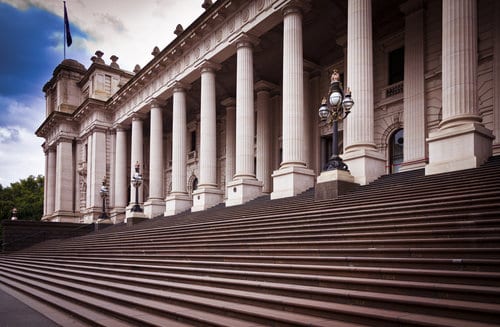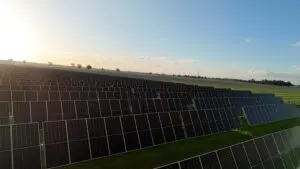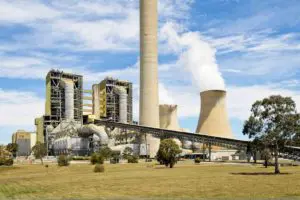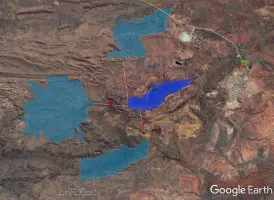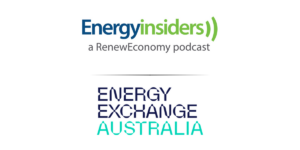Yesterday was an historic day for Victoria’s energy future.
After years of Federal government inaction on climate and energy policy, the Daniel Andrews government kicked off its legislative push on the Victorian Renewable Energy Target by announcing the first large-scale solar farms that will power Melbourne’s iconic tram network.
The Labor government also announced Australia’s largest renewable energy auction that will bring 650MW of new renewable energy capacity online—a greater amount than the ACT’s entire reverse auction scheme that will take the territory to 100 percent renewables.
And there’s more good news on the way.
The Victorian Renewable Energy Targets of 25 percent by 2020 and 40% by 2025 will soon be enshrined in legislation and will see up to 5,400MW of solar and wind farms build in the state. The scheme is expected to create 10,000 jobs, attract $9 billion worth of investment, and cut power sector emissions by 12 percent.
Despite the clear benefits of the Victorian initiative and strong community support for it (#VRET was a national trending topic for most of the day), Federal Minister for Energy Josh Frydenberg has had nothing positive to say.
The Federal Minister for Environment and Energy Josh Frydenberg has been ill advised to adopt such a negative position on the Victorian Renewable Energy Target. Especially when considering the Federal government’s poor track record on climate and energy policy.
Let’s compare the pair.
Since 2013, Coalition governments have failed to deliver a policy agenda that prevents climate change from getting worse and provides certainty for investment in renewable energy. In fact, it has actively undermined efforts to address the issues by:
- Eliminating the Climate Commission.
- Defunding the CSIRO’s climate change research programs.
- Appointing a ‘climate skeptic’ to review the national Renewable Energy Target.
- Slashing the national Renewable Energy Target by 20 percent.
- Attacking wind farms and backing a hostile senate inquiry into the technology.
- Presiding over the loss of 1 in 3 jobs in Australia’s renewable energy sector.
- Suggesting “coal is good for humanity.”
- Brandishing a lump of coal in the House of Representatives while Australians on the east coast sweltered through a record-breaking heatwave.
- Attempting to abolish the national Clean Energy Finance Corporation twice despite it delivering a return on investment to taxpayers.
- Suggesting that so-called “clean coal” and gas power should receive funding from the Clean Energy Finance Corporation.
- Cutting the budget of the Australian Renewable Energy Agency (ARENA) by $500 million.
- Ruling out an Emissions Intensity Scheme before considering the merits of the policy.
- Repealing the carbon price penalty for corporations that pollute our air and cause climate change.
- Letting polluters of the hook and forcing taxpayers to pay for emissions cuts by establishing the flawed Emissions Reduction Fund.
- Supporting Adani’s Carmichael coal mine and export industry.
- Continued calls to overturn the Victoria’s legislated ban on risky unconventional gasfields and moratorium on onshore gas.
In contrast, the Andrews government has demonstrated leadership on climate, energy, and resources since its election in 2014. Under the stewardship of Minister Lily D’Ambrosio Victoria has (in addition to the aforementioned announcements):
- Ripped up the Baillieu government’s anti-wind farm laws that cost the state $864 million of investment and thousands of jobs.
- Retained and increased the Victorian Energy Efficiency Target scheme.
- Used the government’s purchasing power to secure investment in two wind farms: Kiata 30MW and Mt Gellibrand 132 MW.
- Established the $20 million New Energy Jobs Fund to accelerate Victoria’s cleantech sector.
- Appointed former ACT Minister for Energy Simon Corbell as the state’s first Renewable Energy Advocate.
- Legislated a fair price for solar, lifting Feed-in Tariffs for Victoria’s solar homes and businesses.
- Strengthened the Climate Change Act to bring the state’s climate policy architecture inline with the Paris Accord. Victoria now has a legislated target of zero-net emissions by 2050 and a requirement to set interim targets every five years.
- Announced two tenders for a total 100 megawatts of large-scale energy storage.
- Protected Victorian farmland and water from onshore gas development with a legislated ban.
- Announced two new solar farms in northern Victoria to power Melbourne’s trams.
- Conducted a review of Victoria’s retail gas and electricity markets.
- Launched the country’s first Community Energy Hubs in Ballarat, Bendigo, and the Latrobe Valley.
- Supported the expansion of the Nectar Farms greenhouse using a combined wind and battery storage project.
- Established the $4.7 million Climate Innovation Partnerships Grant Scheme.
Comparing the track record of the two, it’s clear that Victoria has an energy minister whereas the Federal government has an energy commentator.
Every minute Josh Frydenberg spends indulging in TV appearances and radio interviews is time that could be invested into policy development.
It’s time for the Federal government to end its attacks on states and territories that only serve as a distraction for its own failures.
Leigh Ewbank is Friends of the Earth’s Act on Climate coordinator and former coordinator of Yes 2 Renewables—the campaign that has championed the VRET since 2014.

